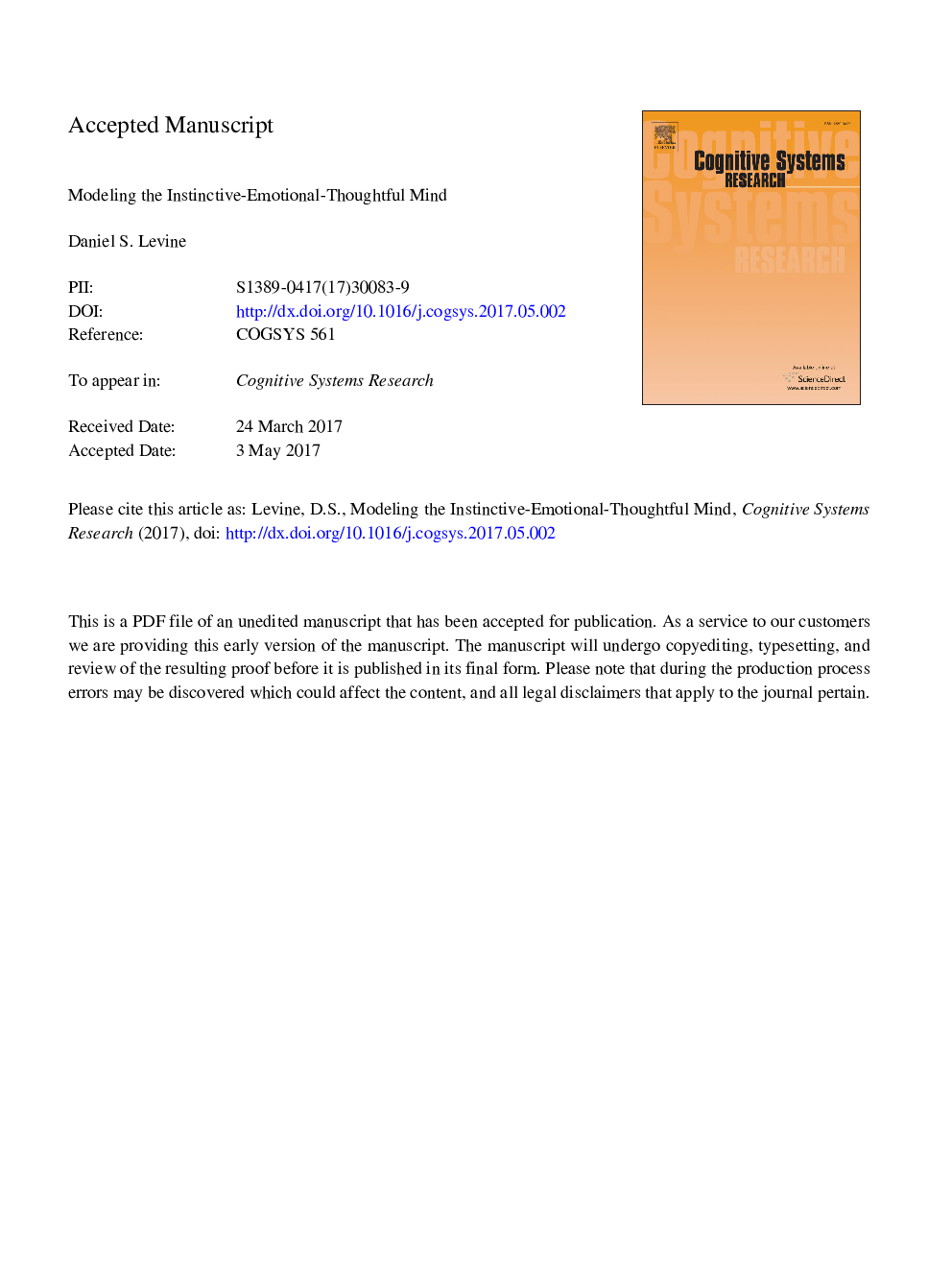| Article ID | Journal | Published Year | Pages | File Type |
|---|---|---|---|---|
| 4942388 | Cognitive Systems Research | 2017 | 23 Pages |
Abstract
Two-process notions of mental function, based on the dichotomy between intuition (or emotion) and reason (or deliberation), have been popular both in the scientific community and the general educated public. Yet the findings and insights of pioneering neuroscientists such as Paul MacLean, Walle Nauta, Karl Pribram, Antonio Damasio, and Luiz Pessoa argue against such a simple dichotomy. Rather, results from the last half century yield a picture that is closer to a triune parcellation of the mind into instincts, emotions, and thoughts, with extensive overlap as well as connections among brain regions involved in all three. Emotional processes are not always automatic and not in general opposition to reason. This article reviews the evidence from neuroscience and then discusses some computational models of interplay between instinctive, emotional, and deliberative brain processes in human decision making. The article concludes with comments on research and societal implications of this triune view of the mind.
Related Topics
Physical Sciences and Engineering
Computer Science
Artificial Intelligence
Authors
Daniel S. Levine,
